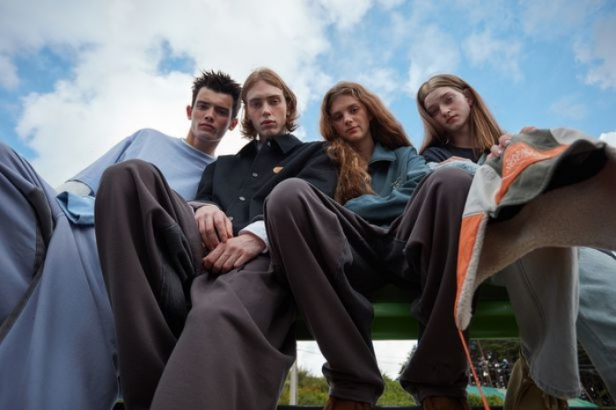South Korea's Samsung Fashion Institute on Thursday announced "Dive In" as the keyword for next year's trends in the fashion industry, meaning that if this year was the time to devise a blueprint for the market, next year is when to dive headfirst into it.
"Talks on revision of the rule for wearing masks indoors shows that the end of the pandemic is near. Next year is the time to dive into the market," said Institute director Lim Ji-yeon.
From January to October this year, domestic fashion saw retail sales of 62.6 trillion won ($48.8 billion), up 9% from 57.4 trillion won over the same period last year, the think tank said. But it warned of sluggish growth next year due to an expected economic slowdown, reduced consumption and the dispersion effect on consumption from the normalization of overseas travel.
So more attention is needed to changes in consumption patterns, the institute added, saying a recession gives birth to a consumption type featuring selective purchases of items with the highest utility under a given budget.
To buy what they want, consumers exercise extreme restraint in spending on necessities such as food. The institute said only irreplaceable fashion brands will survive amid this consumption trend.
It also stressed the need to focus on the "yold" demographic largely pushed aside by the MZ (millennials and Generation Z) crowd. The term yold is a neologism combining the words young and old and refers to senior citizens who want to live like youth. This demographic recently emerged as strong consumers in expressing their individuality based on a discerning eye and tastes.
This year, the major issues in domestic fashion were "the biggest fashion market in history," "
popularity of golf wear" and "Seongsu-dong's emergence as a fashion mecca." The blurring of the boundaries between daily life and exercise this year popularized "borderless golf wear," or clothing for the sport worn daily.
Seongsu-dong, a trendy neighborhood in Seoul, punctuated its status as a fashion mecca after major fashion companies like Musinsa and Gentle Monster relocated their headquarters there.
Write to Jeong-Cheol Bae at
bjc@hankyung.com



